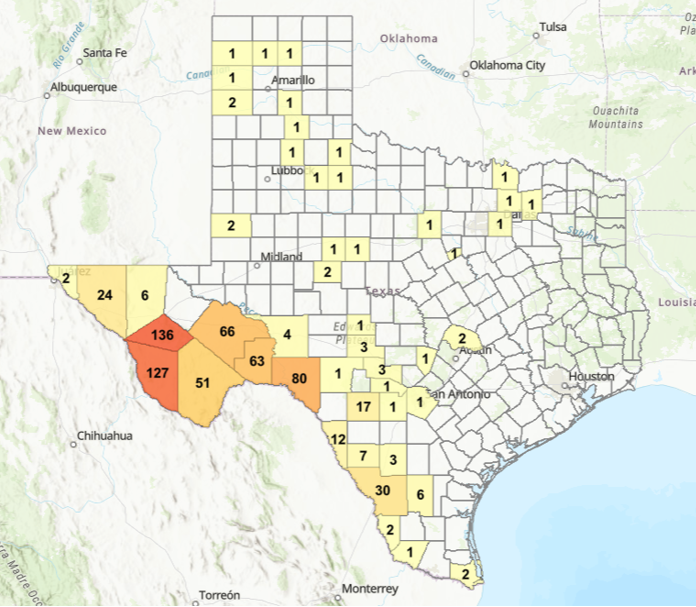Commission Meeting Agenda Item No. 14
Presenter: Jonah Evans
Briefing
Status of Mountain Lions and Regulations
August 25, 2022
I. Executive Summary: Staff will provide a briefing on past mountain lion research efforts, the current monitoring and status of mountain lions, the elements of a recent petition for rulemaking, and the potential formation of a stakeholder group.
II. Discussion: While mountain lions were historically found in all parts of the state, today they are primarily found in the Trans-Pecos and the border regions of South Texas.
As a result of a 1991 petition for rulemaking to Texas Parks and Wildlife Department (TPWD) to provide greater protections for mountain lions, TPWD funded research in South Texas and Big Bend Ranch State Park. Mortality in South Texas was primarily due to opportunistic hunter harvest, while trapping was the primary cause of death in Big Bend Ranch State Park. A study published by Texas A&M University-Kingsville (TAMUK) in 2012 found that the mountain lion population in South Texas experienced a 10 to 20% decline in genetic diversity when compared to historic populations, and that “the effective size of the southern Texas population declined >50%, whereas effective size in western Texas remained large and stable over time.” The most recently published mountain lion research report in Texas was published by the Borderlands Research Institute in 2016, and it focused on populations in the Davis Mountains. The 2012 TAMUK study is the most recent research focused on mountain lion populations outside of the Trans-Pecos.
There are few studies on the population status of mountain lions in Texas. Traditional research on the status of elusive carnivores with large home ranges in a private lands state is difficult and costly. TPWD does not currently conduct direct monitoring or survey efforts but does encourage the public to voluntarily report mountain lion sightings, mortalities, and harvests, and TPWD compiles these reports in a database. Using verified reports provides data on mountain lion distribution but is insufficient to accurately determine population trends or status.
On June 13, 2022, TPWD received a petition for rulemaking from the Texans for Mountain Lions Coalition. Mountain lions in Texas are classified as a nongame species under Parks and Wildlife Code, chapter 67 and TPWD does not regulate their take. The petition requested that TPWD promulgate the following specific regulations: 1) a requirement that mountain lions intentionally taken for any reason be presented to the department within 48 hours of take, 2) a 36-hour trap check requirement, 3) a regional bag limit of five mountain lions per year in South Texas, and 4) prohibition of “canned hunting” of mountain lions. The petition also requested that TPWD: 1) initiate a statewide study to identify the abundance, status, and distribution of the mountain lion populations in Texas, and 2) form an ad hoc stakeholder advisory group composed of representatives from hunting organizations, livestock organizations, wildlife conservation organizations (non-hunting), outdoor recreation organizations (non-hunting), animal welfare organizations, independent mountain lion biologists, TPWD biologists, and TPWD policy managers to collaborate with TPWD to write a mountain lion management plan for Texas.
TPWD staff recommended denying the petition to allow sufficient time for the formation of stakeholder group to examine mountain lion policy and to provide feedback to the Texas Parks and Wildlife Commission for consideration.
Commission Agenda Item No. 14
Exhibit A
Map of confirmed mountain lions reported to TPWD from 2012-2022
